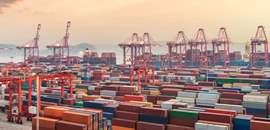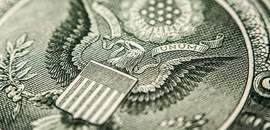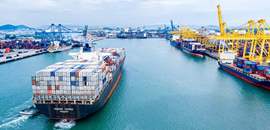Significance for U.S. Consumers, Dollar
President Trump’s threat to impose a 10% tariff on $300 billion of Chinese imports and his claim that China is deliberately weakening its currency have triggered the largest U.S. stock market sell-off since late last year. However, there are two important differences from prior actions.
One is that American consumers will see the price effects on goods such as clothing, electronics, and other items that were excluded from previous tariff hikes. The other is that the U.S. Treasury subsequently declared China to be a currency manipulator. It occurred as the Chinese currency (CNY) fell to 7.04 yuan per U.S. dollar, the weakest level in over a decade.
This accusation, however, is not accepted by many economists, who view the yuan’s weakness as the result of natural market forces. In fact, it is exactly what economic theory predicts should happen when tariffs are imposed.1
The logic is that while tariffs will initially tend to reduce the U.S. trade deficit, they will at the same time cause the U.S. dollar to increase as the international supply of dollars declines. The increase in the price of the U.S. dollar reduces U.S. international price competitiveness, which impacts exporters.
Currency War Concerns
Another risk is that President Trump has suggested on several occasions that the U.S. government could retaliate by selling dollars to weaken the U.S. currency.3 While Larry Kudlow has denied the Trump administration is considering doing this, it cannot be ruled out altogether. However, with the federal deficit about to blow out and the Federal Reserve under pressure to ease monetary policy further, selling dollars could undermine investor confidence at some point.
How Will the Trump Administration Respond?
First, it should consider whether the goals it set out to achieve are being met. Unfortunately, what began as an effort to redress unfair Chines trade practice and to protect American jobs in manufacturing, has instead contributed to a slump in global manufacturing and world trade. And while U.S. manufacturing has continued to eke out gains thus far, it is the most vulnerable sector should the global economy slip into recession.
Second, it should recognize that the positive effects of tax cuts and deregulation on economic growth are being undermined by the proliferation of tariffs that began one year ago. In the meantime, real GDP growth over the past four quarters has slowed to 2 ¼% per annum compared with more than 3% in the previous four quarters.
Finally, even if tariffs are not good for the U.S. and world economy, the Trump administration should weigh whether they are good politically. There is no denying that Donald Trump’s message of defending workers resonated in areas that had been adversely impacted by foreign competition. Indeed, none of the leading Democratic presidential candidates have challenged him on that, although the picture could change if tariff hikes boost prices of goods American households.
Investment Implications
2People’s Bank of China, Foreign Exchange Reserves.
3“White House Considered Weakening the U.S. Dollar Before Ruling It Out,” by Alan Rappeport and Jeanna Smialek, New York Times, July 26, 2019.



















